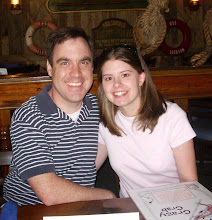_
If you have the time, I encourage you to read this. It's an enjoyable read because he's an excellent writer (though I should warn the easily-offended that there is cursing.) He has some true and stinging assessments of conservative Christianity's sub-culture. But, overall, I was amazed by this "preacher's" unregenerate understanding of biblical faith. Yes, we go through seasons of doubt and questions. But this poor soul has camped out there, considering it an honorable thing.
_
This preacher says, "God, I don’t have great faith, but I can be faithful. My belief in you may be seasonal, but my faithfulness will not. I will follow in the way of Christ. I will act as though my life and the lives of others matter. I will love." Though that may sound honorable to some, it most assuredly is not. That is unbelief. That is works without faith. That is liberal Christianity.
_
Top Shelf Christianity, Deep and Old Christianity (to borrow his terms) teaches that "the righteous shall live by his faith" (Habakkuk 2:4 & Romans 1:17). We are justified (saved, forgiven) by faith. And this faith is not seasonal, wishful thoughts that God might exist. Biblical, saving, top shelf faith is an "assurance of things hoped for, the conviction of things not seen" (Hebrews 11:1).
_
Friends, we must be convinced. We must know that our Redeemer lives and on the earth again shall stand (Job 19:25). We must be sure, be very sure, that our calling and election is true (2 Peter 1:10). Are you?
_
The fool says in his heart,
"There is no God."
Psalm 14:1


4 comments:
Gentle question:
What would you suggest for a Christian person who has struggled to believe in God? Who has intellectual doubts that at times get the best of him or her?
Is there room in your church for this person? May this person go to church, read scripture, pray, in short remain faithful and in community while he or she hopes for help from God in overcoming doubts?
Can this person say, like the father in Mark, "I believe, help my unbelief?"
I wrote that little autobiographical piece years ago, and I haven't read it in a long time. But that's what I was getting at. By Top Shelf Christianity, I meant the serious and pious Christians whose love of Jesus made me want to stay with the Church even when I had doubts. I wasn't talking about my own Christianity.
You must, I think, allow the word faith to be large enough to include people who struggle with intellectual doubts, but are willing to remain faithful to God while they do.
That is faith too, as I read the Greek word pistis. It's a very serious and broad word. It carries the meaning for three English words - faith, trust, and belief.
The real live preacher! I am pleasantly surprised to find a comment from you. I sincerely appreciate your gentleness as well. May you find that same spirit in what follows.
Calvin defined faith as "a firm & sure knowledge of the divine favor toward us, founded on the truth of a free promise in Christ, and revealed to our minds and sealed on our hearts by the Holy Spirit." That definition of faith sufficiently describes biblical faith. Does doubting God's plan, goodness, presence, or power (Mark 9:24) fit into this definition? Sure.
But doubting God's existence? No.
You asked about a Christian person struggling to believe in God. I do not see how such a person could call himself a Christian. How can I trust in Christ for salvation if I'm not sure there is a God? How can I place my hope on the Gospel promises if I'm not sure God exists? Biblically, I cannot.
Intellectual doubts and doubters are welcomed! Not only can they come to church and read Scripture, they are encouraged to do so. But we come to the Scriptures because they give us answers. God's Word gives us truth to believe. The Spirit of God in the Christian will produce answers. If we live our lives in consistent and constant doubt, then we are faithless and do not have the Spirit within us.
One last and crucial point... the noetic effects of sin. We can't forget that our minds are marred by sin's dreadful taint. When we place our own ideas, opinions, even doubts above what God has told us in His Word, then that is an obvious and dangerous form of pride. When our academic pursuits and intellectual musings trump God's Word, we find ourselves opposing God. Proverbs 3:7 says, "Be not wise in your own eyes; fear the LORD, and turn away from evil."
Again, thank you for your comment. I'm honored that you read my post.
I'd prefer an analysis of pistis over against Calvin's definition. Who cares what Calvin said? I don't mean to put him down, but as we seek the full meaning of faith, why is he an authority?
You are young and in seminary. Things are very clear to you. And I love passion about Christ in young people. Stay open and searching. Stay in love with Christ.
I wish you well. I prayed for your future and current ministry tonight.
My point was not the source of the definition, but the substance. Calvin is no authority. The Bible is, and Calvin is only correct when he affirms the Bible.
When I read your story, I prayed for you. I appreciate you doing the same for me. My prayer for myself is that my youthful seminarian faith in Christ would not devolve into searching for answers.
Post a Comment